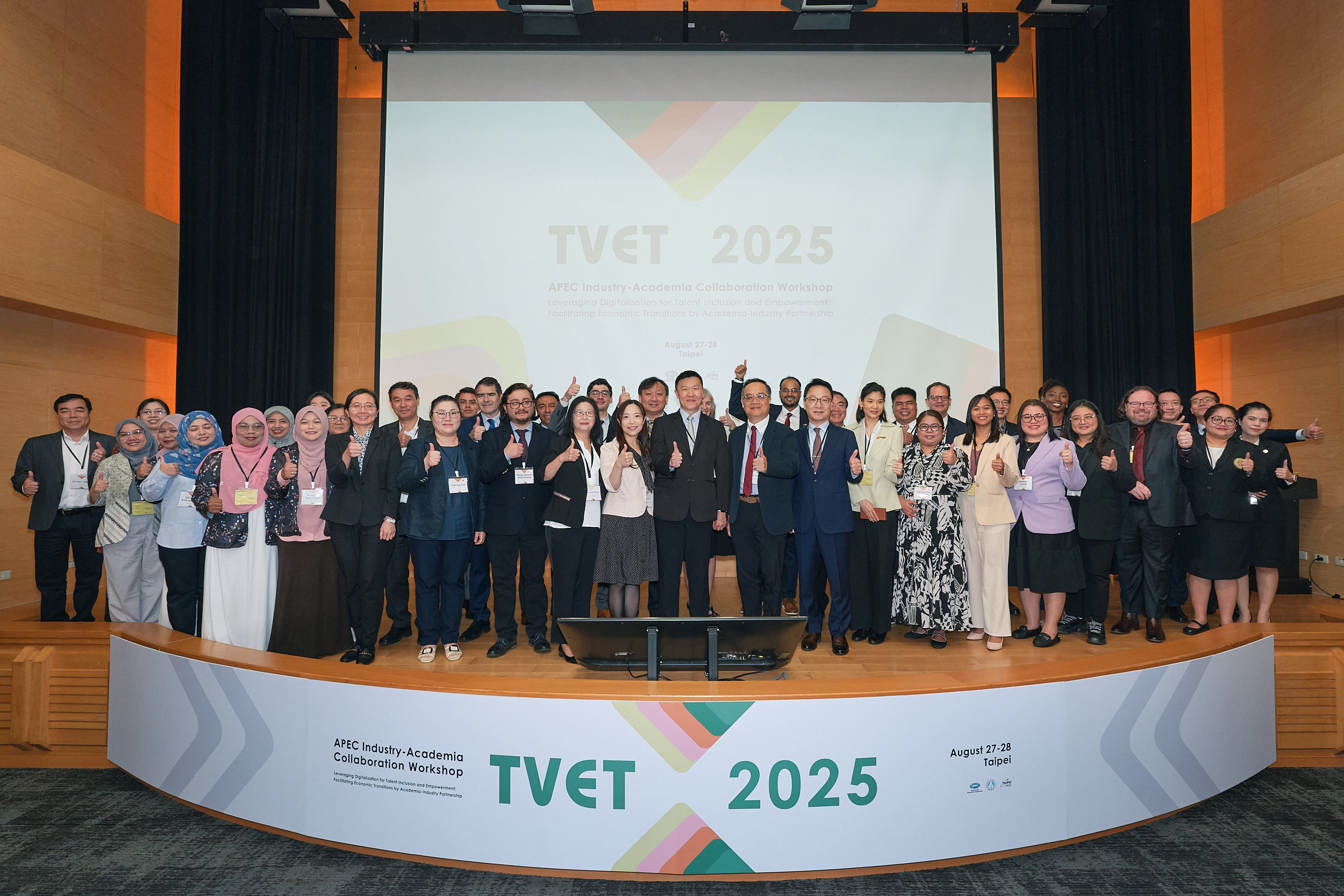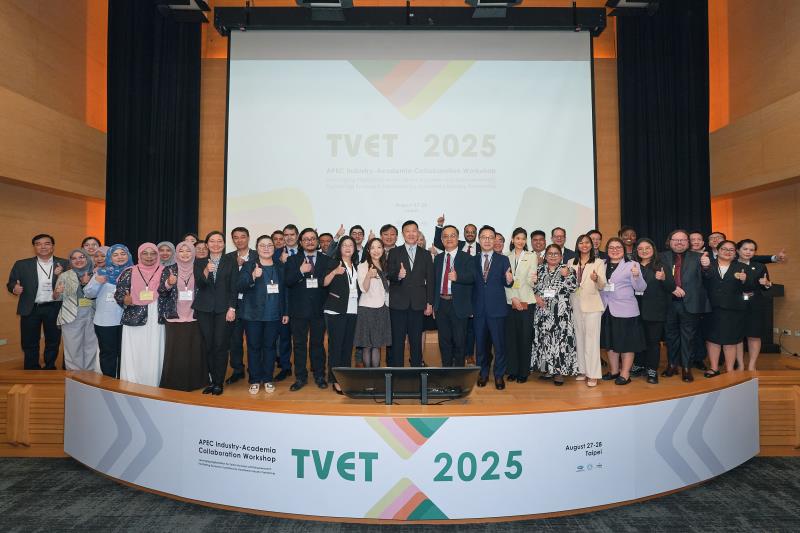2025 APEC Industry- Academia Cooperation Workshop Leveraging Digitalization for Talent Inclusion and Empowerment: Facilitating Economic Transitions by Academia-Industry Partnership

To strengthen regional collaboration in industry-academia engagement and cross-domain talent development, the Ministry of Education of Chinese Taipei hosted the 2025 APEC Industry-Academia Collaboration Workshop from August 27 to 28 in Taipei. The event welcomed 36 representatives from 10 APEC member economies, along with nearly 70 participants from local universities and colleges, to exchange insights on how to align talent development strategies with the needs of emerging industries in the digital era.
In his opening remarks, Dr. Chen-Pang Hsu, Deputy Director of the Department of Technological and Vocational Education, emphasized that the rapid changes of the digital age are reshaping the relationship between education and industry. He noted that Chinese Taipei remains committed to cross-sector collaboration to cultivate innovative, digitally competent, and inclusive future talent, while working with other economies to expand the regional network of cooperation.
Centered around the theme " Leveraging Digitalization for Talent Inclusion and Empowerment: Facilitating Economic Transitions by Academia-Industry Partnership," the workshop featured three keynote speeches:
• Dr. Kim Heon Young, Chair of the RISE (Regional Innovation System and Education) Central Committee in Korea, shared strategic insights on Korea’s “Regional Innovation University” and “Glocal College 30” initiatives, aimed at enabling sustainable higher education reform in response to globalization.
• Dr. Srichattra Chaivongvilan, strategist at Thailand’s APEC Center for Technology Foresight, introduced national strategies for bridging the education system and labor market through digital transformation and skills-based policy.
• Dr. Jenn-Hwan Tarng, Vice President of National Yang Ming Chiao Tung University, presented outcomes from the Industry-Academia Innovation School, focusing on the development of advanced digital talent and strong university-industry linkages.
In addition to the keynotes, seven best-practice case presentations were delivered by speakers from Canada, Indonesia, Malaysia, and Thailand, along with local experts. The cases covered practical models in AI, railway technology, unmanned aerial vehicles (UAVs), and smart manufacturing, highlighting strategies for industry-aligned curricula, applied research, and high-skill talent cultivation.
To foster inclusive dialogue, the workshop also featured three concurrent focus group discussions under the themes of:
• Cross-Domain Digital Talent Development
• Inclusive Digital Transformation
• Sustaining Collaboration and Regional Growth
These sessions allowed participants to explore institutional challenges and share innovative practices in industry-academia collaboration. A concluding panel summarized key insights and offered forward-looking policy recommendations.
On the second day, APEC delegates visited Lunghwa University of Science and Technology, where they toured facilities dedicated to semiconductor packaging, smart manufacturing, and 5G module development. The visit offered a comprehensive view of how local universities integrate technological innovation into teaching and applied training. A cultural tour was also arranged to showcase the depth and diversity of Chinese Taipei’s cultural and educational assets.
The Ministry of Education noted that the workshop received official endorsement from the APEC Human Resources Development Working Group (HRDWG) and was supported by seven member economies: Chile, Japan, Korea, Malaysia, New Zealand, the Philippines, and Thailand. The event underscored Chinese Taipei’s longstanding dedication to technical and vocational education and international cooperation.
Through this event, the Ministry aims to further advance practical regional exchanges and multi-level partnerships, and to cultivate innovative talent in alignment with the demands of the digital economy—injecting new momentum into regional prosperity.

